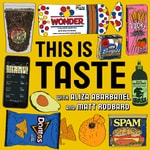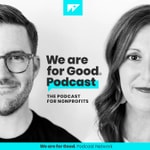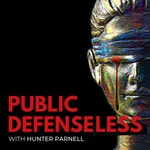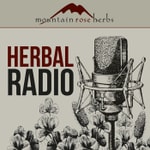Future Natures – Details, episodes & analysis
Podcast details
Technical and general information from the podcast's RSS feed.
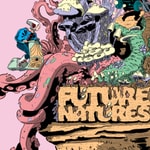
Future Natures
Future Natures
Frequency: 1 episode/84d. Total Eps: 10

futurenatures.substack.com
Recent rankings
Latest chart positions across Apple Podcasts and Spotify rankings.
Apple Podcasts
🇬🇧 Great Britain - documentary
05/02/2025#99
Spotify
No recent rankings available
Shared links between episodes and podcasts
Links found in episode descriptions and other podcasts that share them.
See all- https://stopcop.city/
43 shares
- https://www.soulfirefarm.org/
30 shares
- https://www.girltrek.org/
20 shares
RSS feed quality and score
Technical evaluation of the podcast's RSS feed quality and structure.
See allScore global : 59%
Publication history
Monthly episode publishing history over the past years.
Fungi, relationships and emancipatory futures
vendredi 15 novembre 2024 • Duration 57:07
Maymana Arefin is the founder of Fungi Futures, a project learning with fungi to map radical alternative futures.
Maymana began Fungi Futures in part due to inspiration from the “wood wide web” which they value as a metaphor for our interconnectedness, our dependence on one another for mutual aid, care and transformation, “I sought to understand how we, as a collective can organise better, hearing the cries of our neighbour to mobilise and manifest webs of support ~ this wasn’t some cute, distant fantasy but a call to action ~ decolonisation is NOT a metaphor”.
This episode challenges some deep-set assumptions around where ecological knowledge comes from and whose knowledge matters. Maymana explains how fungi are teachers and – if we pay attention – can show us different ways of being in relationship with our ecosystems and ourselves.
In the discussion, we cover topics around the colonial history of botany and nature-based art, what ‘queering’ ecology means, and how fungi help bring community and healing.
Links
Some of the books, articles and initiatives mentioned in this episode are linked below. If you are viewing this episode on some podcast players, some links may not work: visit the original post on the Future Natures website. For full audio and show notes from this and all past episodes, visit futurenatures.org/podcast
Maymana’s poem: Communion with a shaggy inkcap
MISERY (QTBPOC mental health collective)
‘Foragers’ (documentary on Palestinian foraging by Jumana Manna)
Further readings
The Palestine Heirloom Seed Library founded by Vivien Sansour
Mushroom growing in Gaza and occupied West Bank: articles from Jinha Agency and Al Jazeera
QUEER ECOLOGY
Queer ecologies (projects and resources)
BOTANY AND COLONIALISM
Books:
Shipping Roots, by Keg de Souza. Shipping Roots shares lesser-known stories of plants being moved over oceans and lands as elements of the colonial legacies of the British Empire. As someone with Goan heritage, the book draws on de Souza's experiences "as a person whose ancestral lands were colonised, and as a settler on the unceded lands of the Gadigal people."
Our Knowledge Is Not Primitive: Decolonizing Botanical Anishinaabe Teachings by Wendy Makoons Geniusz
Webinar talks:
Decolonizing Botany - Banu Subramaniam (author of Botany of Empire: Plant Worlds and the Scientific Legacies of Colonialism). More about the work of Banu Subramaniam is covered here.
Plants of Black Freedom - Leah Penniman (hosted by American Herbalists Guild)
Articles:
How Indigenous insight inspires sustainable science (English and Spanish versions): Quechua Amazonian evolutionary biologist Nataly Allasi Canales imagines what it would be like to grow up with the Matsigenka, living in the forest in the Amazon Basin and using the plants around her as food and medicine.
The theft and the colonization of Africa's indigenous knowledge by Anselm Adodo
ETHICAL MUSHROOM FORAGING
Ethical foraging, piece by Maymana Arefin in The Great Outdoors magazine
This is a public episode. If you would like to discuss this with other subscribers or get access to bonus episodes, visit futurenatures.substack.com
Urban heat justice
mercredi 25 septembre 2024 • Duration 45:18
Urban heat justice is a topic that traverses both how people experience and suffer from heat, especially in the context of evolving climate crisis and its impacts on cities around the world.
In this episode we talk with Panagiota Kotsila about urban futures, climate related suffering and heat injustice – an issue entangled with disability injustice, racial justice, labour justice, housing justice and, in many cases, differentially experienced along lines of age, gender, and class.
We talk about the continuities of colonial histories and their presence in the health of migrants in cities who are differentially affected by urban heat - focusing on experiences from Barcelona, Spain.
We discuss how ‘green isn’t always good’, drawing on examples from Panagiota’s work around social justice issues of urban green spaces and the political ecologies of cities. We also learn about migrant knowledges as central to creating ‘emancipatory’ cities where the diverse needs of residents are met through active participation.
You can follow Panagiota on X/Twitter at @PKotsila.
Links
Some of the books, articles and initiatives mentioned in this episode are linked below. If you are viewing this episode on some podcast players, some links may not work: visit the original post on the Future Natures Substack.
Barcelona Lab for Urban Environmental Justice and Sustainability (website)
Barcelona Lab for Urban Environmental Justice and Sustainability (YouTube channel)
Undisciplined Environments Collective
Book: Inflamed: Deep Medicine and the Anatomy of Justice by Raj Patel and Rupa Marya
Book: Insurgent Ecologies: Between Environmental Struggles and Postcapitalist Transformations. Edited by Undisciplined Environments Collective. Published by Fernwood Publishing - see especially Part 4: Feminisms (by Panagiota Kotsila, Ilenia Iengo and Irene Leonardelli)
Journal article: Expanding the Boundaries of Justice in Urban Greening Scholarship: Toward an Emancipatory, Antisubordination, Intersectional, and Relational Approach. 2020. Annals of the American Association of Geographers, 110(6), 1743–1769.
Book chapter: Immigrant communities in Europe as situated knowledge holders for postcolonial and feminist urban adaptation to climate health risks. From the book Urban Movements and Climate Change (2023)
Panagiota’s upcoming research project: Embracing Immigrant Knowledges for Just Climate Health Adaptation (IMBRACE)
This is a public episode. If you would like to discuss this with other subscribers or get access to bonus episodes, visit futurenatures.substack.com
Shepherding schools and reviving rural futures
vendredi 9 août 2024 • Duration 57:00
The ‘rural’ is a doing word. This is a key take-home message from this interview with Fernando Garcia Dory, set deep in the mountains of northern Spain.
This episode explores how livestock shepherding relates to commoning and enclosures in an ongoing project, Inland: Campo Adentro. Inland is a shepherd school, or ‘agroecological lighthouse’, with a three-word manifesto: art, agriculture and territory.
We talk to Fernando about how he has created a space to reclaim ecological relationships, whilst also challenging regressive concepts around territory, identity and emotions often associated with the countryside.
The ‘rural’ is not simply a genre of study, says Fernando. In the wake of farmer unrest in Europe, neoliberal markets, rural depopulation and a need for renewed interest in slow agriculture, he and his community contend with intersecting issues affecting the future of shepherding in Spain. They focus on the everyday ‘doing’ and making of diverse, creative and lively futures for extensive agriculture.
Links
Some of the publications and initiatives mentioned in this episode are linked below. If you are viewing this episode on some podcast players, the links may not work: visit the original post on the Future Natures Substack.
Inland: Campo Adentro on Instagram
Inland: Campo Adentro (main website)
More information about Inland’s shepherding school (in Spanish)
Seasonal Matters, Rural Relations – booklet by Seasonal Neighbours
Micribiopolitics of milk (an offer to buy the book and Campo Adentro cheese!)
Book: The Rural (MIT press 2019)
Transhumancia y Naturaleza – founded by Jesús Garzón
This is a public episode. If you would like to discuss this with other subscribers or get access to bonus episodes, visit futurenatures.substack.com
Land, democracy, identity
mardi 7 mai 2024 • Duration 01:18:22
Antonia Malchik is the author of a forthcoming book entitled ‘No Trespassing: How the ancient struggle for ownership, private property and the rights of the commons will define our future’. Antonia regularly writes online about ownership, property and what we lose in the privatization of the commons through her Substack newsletter, ‘On the Commons’.
In this episode, we trace the histories of enclosure into the current structures of ownership and privatization. Focusing primarily on the United States, Antonia raises some nuanced and refreshing insights into how enclosure relates to urban mobility, contemporary environmentalism, and democracy.
With a knack for telling stories, Antonia regularly relates issues to her own experiences, and draws on the work of a range of activists, writers, campaigners and thinkers.
This episode is a journey with many roots and branches, including a discussion on the influence of the far right in relation to land politics, always coming back to the roles of ecological values, power and ideologies.
Links
Some of the books, articles and initiatives mentioned in this episode are linked below. If you are viewing this episode on some podcast players, the links may not work: visit the original post on the Future Natures Substack.
Antonia Malchik: A Walking Life: Reclaiming Our Health and Our Freedom One Step at a Time
Antonia’s article in Aeon Magazine: Who owns the Earth?
Andro Linklater: Owning the Earth: The Transforming History of Land Ownership
Jonathon Stalls: WALK - Slow Down, Wake Up & Connect at 1-3 Miles Per Hour
Rail-volution (now called Mpact Mobility)
David Harvey: The Right to the City
Henry George: Progress and Poverty
Revealed: the insidious creep of pseudo-public space in London - The Guardian
Stop Cop City in Atlanta
What is the 15-minute cities conspiracy theory?
Soulfire Farm, United States
David Bollier’s ‘Frontiers of Commoning’ podcast
Nick Estes: Our History is the Future
Laughing at extremism won’t make it go away – Antonia Malchik
Betsy Gaines Quammen: True West and American Zion
Joe Wilkins: Fall Back Down When I Die
Andreas Weber: Enlivenment: Toward a Poetics for the Anthropocene
Leah Sottile: Bundyville and Stories that Need to Be Told (Crazy Town podcast)
Robin Wall Kimmerer: Braiding Sweetgrass
Nick Hayes: The Book of Trespass
This is a public episode. If you would like to discuss this with other subscribers or get access to bonus episodes, visit futurenatures.substack.com
Folk horror and English commons
mercredi 29 novembre 2023 • Duration 57:10
Andy Thatcher is a photographer, film-maker, writer and researcher who is currently pursuing a PhD at the University of Bristol. Andy’s research includes using ‘folk horror’ as a lens to understand the contested histories of English commons.
[Content Warning: This podcast includes a discussion of violence in a historical context.]
In our conversation, we talked about histories and folk legends linked to historic commons in the southwest of England, and how Andy uses research and film making to explore their atmospheres and stories. Folk traditions have long ways for local people to assert claims to the land. Though many historic English commons are obscure and little-known, they can reveal histories of conflict and trauma.
Our conversation touched on ideas about how the ‘weird’, the ‘eerie’ and haunting can help us think differently about places. And we discussed how folk horror of the 1970s and beyond – from the Wicker Man and Penda’s Fen to Candyman and examples from other countries and cultures – can open up deep histories, clashes between tradition and modernity and moral ambiguity.
Links:
Andy Thatcher’s website – see also the films Clouties and Common Place, mentioned in the podcast
Oak Apple Day at Wishford Magna – archive footage from 1949
Folk Horror Revival – articles, essays and resources on folk horror
The Wicker Man (1973) – IMDB
Penda’s Fen (1974) (video at Internet Archive)
Candyman (1992) – IMDB
Strange Natures: Season of art, essays and reflections from Future Natures
Cover image: Still from Penda’s Fen
This is a public episode. If you would like to discuss this with other subscribers or get access to bonus episodes, visit futurenatures.substack.com
Forgotten places and the field of memory
lundi 13 novembre 2023 • Duration 58:19
Cansu Sönmez talks to us about her research on people’s responses to large infrastructure projects, like dams and railways, that disrupt their lives and the spaces where they live.
Cansu shares the story of what happened in the old town of Hasankeyf in Turkey, which was recently flooded by a large dam built to provide hydroelectric power. She also describes the ongoing resistance in Italy against the TAV high speed railway, and how people link memories with places in ways that challenge the visions of developers and the state. We discuss the idea of ‘organised abandonment’ and what it means for people and places who are left behind.
Cansu Sönmez is a PhD candidate at the Gran Sasso Science Institute in L’Aquila, Italy. The interviewer is Nathan Oxley, Centre for Future Natures / IDS.
This is a public episode. If you would like to discuss this with other subscribers or get access to bonus episodes, visit futurenatures.substack.com
Mining and resistance in Covas do Barroso, Portugal
lundi 16 octobre 2023 • Duration 01:09:44
Covas do Barroso in Portugal is in a region that’s famous for traditional ways of life and sustainable agriculture. It’s also right next to a site that’s targeted for Europe’s largest open-cast lithium mine. Local people have been campaigning against the mine now for several years, through a series of consultations, challenges and assessments. In this episode, Anoushka and Nathan speak to two people with insights into the struggle: Carla Gomes and Francisco Venes.
To find out more about the movement, visit the Facebook page: https://www.facebook.com/UnidosemdefesadeCovasdoBarroso
This is a public episode. If you would like to discuss this with other subscribers or get access to bonus episodes, visit futurenatures.substack.com
Open source seeds
vendredi 10 février 2023 • Duration 44:20
Anoushka talks to Almendra Cremaschi about seeds and the multiple forms of enclosure that have affected the seed sovereignty of farmers in Argentina and across the world.
We talk about Bioleft, an initiative based in Argentina that challenges the concentration of seed markets and makes space for knowledge, imagination, and art to grow an open-source system for seeds.
For more information about Bioleft, visit the website: https://bioleft.org
Read more: https://futurenatures.org/seeding-the-commons-in-argentina/
This is a public episode. If you would like to discuss this with other subscribers or get access to bonus episodes, visit futurenatures.substack.com
Food that’s not for sale
lundi 19 décembre 2022 • Duration 40:50
Anoushka Zoob Carter talks to Sam Bliss, who is involved in activism and research on 'food that's not for sale'. As well as the topic of enclosure, Anoushka and Sam explore the paradoxes of food waste in the food commons. The conversation also takes a provocative dive into the role of private property rights in producing food as a commons.
Read more: https://futurenatures.org/food-thats-not-for-sale/
This is a public episode. If you would like to discuss this with other subscribers or get access to bonus episodes, visit futurenatures.substack.com
Commoning in a Palestinian refugee camp
vendredi 21 octobre 2022 • Duration 32:31
Yafa el Masri was born as a Palestinian refugee in Beirut. In this episode, Anoushka talks to Yafa talks about the importance of commoning in refugee camps in Lebanon, drawing on her recent research there, and her own experience of refugee camp life as a young person.
Read more: https://futurenatures.org/commoning-in-refugee-camps-in-conversation-with-yafa-el-masri/
This is a public episode. If you would like to discuss this with other subscribers or get access to bonus episodes, visit futurenatures.substack.com
